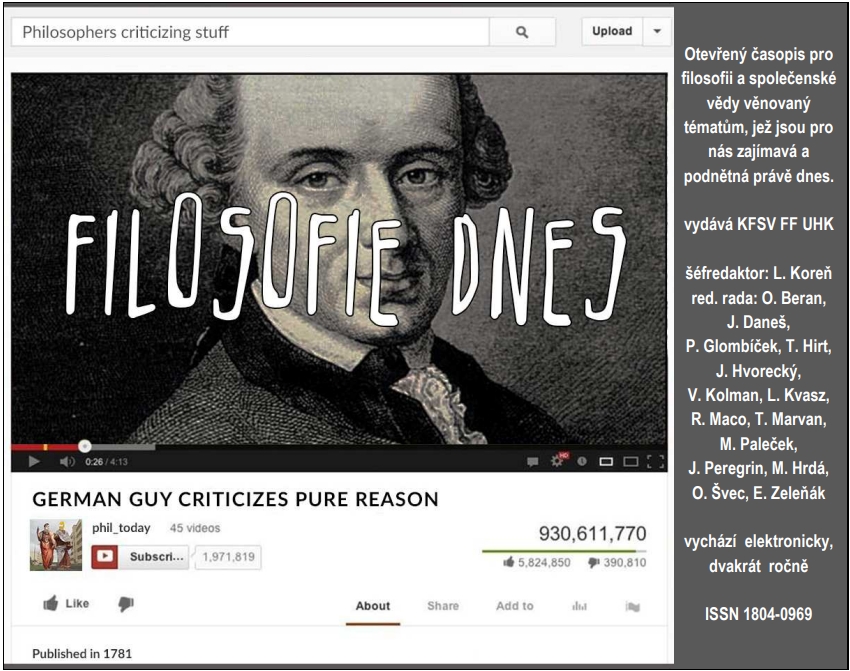Srovnávat nesrovnatelné
DOI:
https://doi.org/10.26806/fd.v9i1.246Keywords:
Nesouměřitelnost, Neporovnatelnost, Prahová deontologie, Konsekvencialismus, Ronald DworkinAbstract
Tento článek se zabývá problémem těžké volby při srovnávání dvou velmi odlišných alternativ. Takové srovnání můžeme akceptovat jako skutečné dilema, nebo odmítnout jako chybné posouzení, protože se srovnává něco nesrovnatelného. Ale co přesně namítáme, když někoho kritizujeme, že srovnává nesrovnatelné? Co vlastně znamená, když o někom řekneme, že srovnává jablka s hruškami? Ukážeme si, že hlavním zdrojem problému není skutečnost, že se srovnávají položky různého druhu, ale spíše potřeba zohledňovat relevantní kontexty. Náročnost porovnání je úzce svázána s náročností jeho zdůvodnění. Skutečnost, že se srovnává nesrovnatelné, se pak projevuje ve vadách takového zdůvodnění. Zejména v tom, že se nedostává uspokojivá odpověď na praktické otázky, proč se v daném kontextu porovnávají zrovna tyto dvě položky, proč se zde porovnávají podle tohoto a ne jiného kritéria a co z takového porovnávání pro tento kontext vlastně vyplývá. Problém srovnávání nesrovnatelného bude ilustrován na příkladech z estetiky, etiky a teorie práva.
This article deals with the hard choice when comparing two very different alternatives. Such a comparison can be accepted as a true dilemma or it can be rejected as a wrong evaluation because it is compared something incomparable. But what exactly do we object to by criticizing someone for comparing the incomparable? What does it mean to say that someone compares apples with oranges? I will show that the main source of the problem is not the fact that items of different kinds are compared, but rather the need to take into account relevant contexts. The difficulty of comparison is closely linked to the hardness of its justification. The fact that it is comparing the incomparable is then reflected in the defects of such a justification. Especially in the absence of a satisfactory answer to the practical questions why just these two items are compared in the given context, why they are compared here according to this and not another criterion, and what follows from such a comparison for this context. The problem of comparing the incomparable will be illustrated by examples drawn from aesthetics, ethics and legal theory.
Downloads
Published
Issue
Section
License
Authors who publish in this journal agree that:
1. Authors retain copyright and guarantee the journal the right of first publishing. All published articles are licensed under the Creative Commons Attribution license, which allows others to share this work under condition that its author and first publishing in this journal was acknowledged.
2. Authors may enter into other agreements for non-exclusive dissemination of work in the version in which it was published in the journal (for example, publishing it in a book), but they have to acknowledge its first publication in this journal.
3. Authors are allowed and encouraged to make their work available online (for example, on their websites) as such a practice may lead to productive exchanges of views as well as earlier and higher citations of published work (See The effect of open access).


